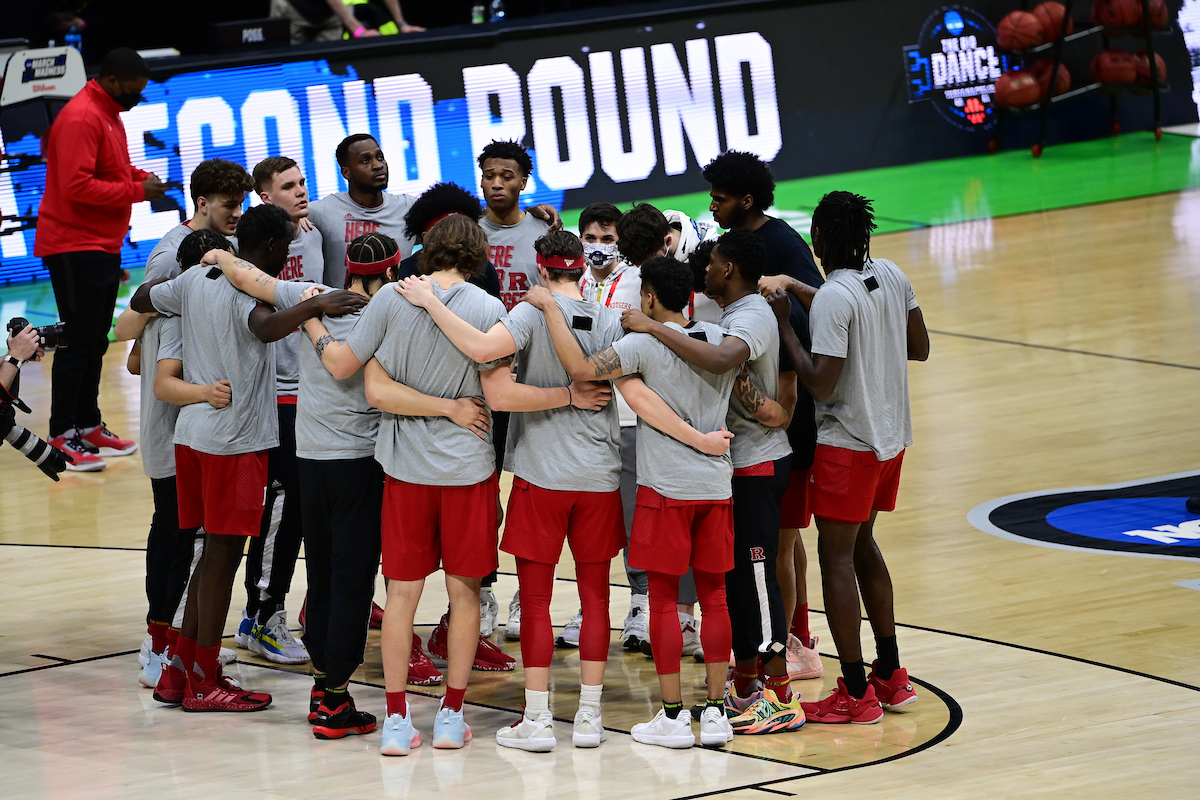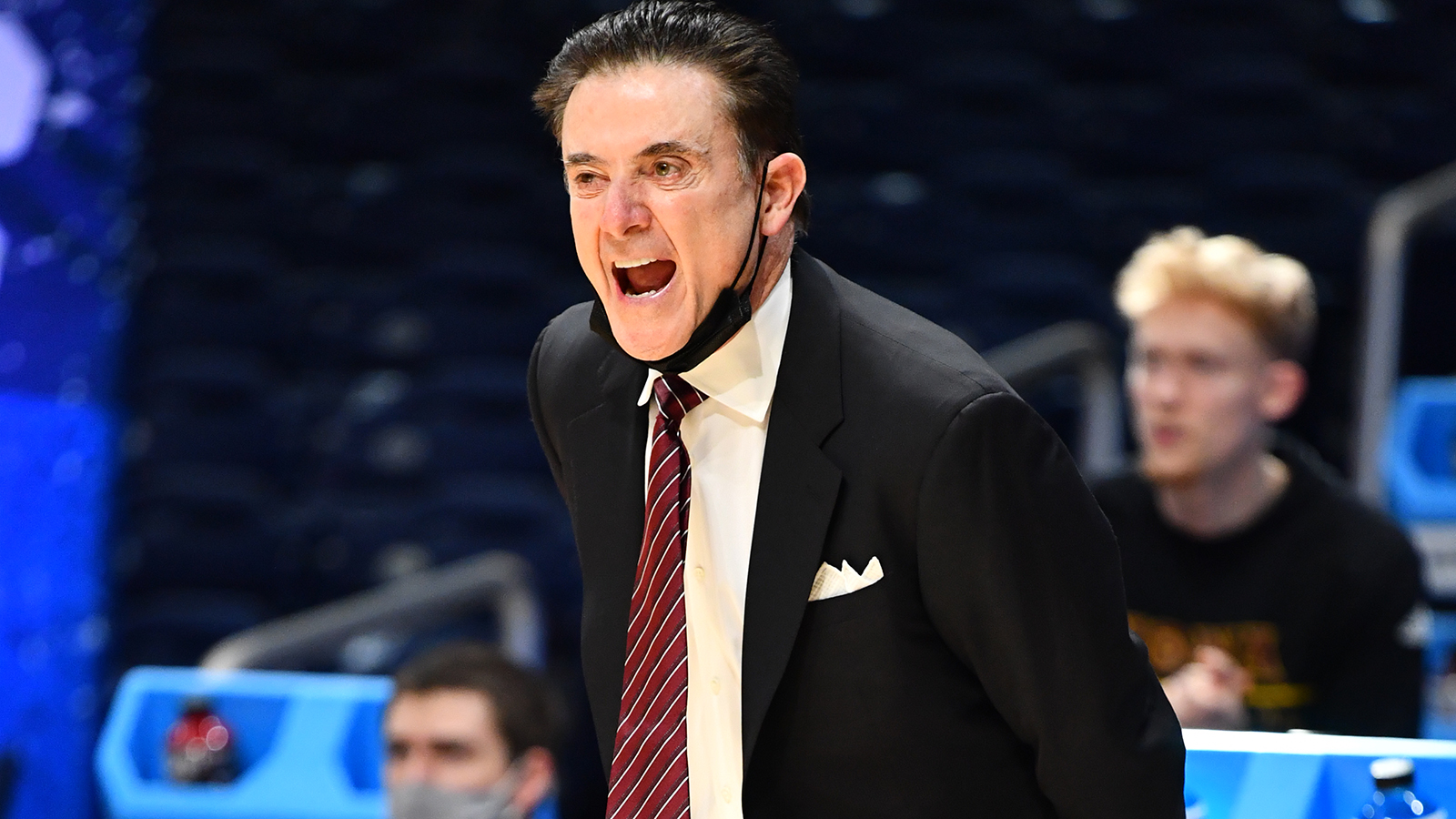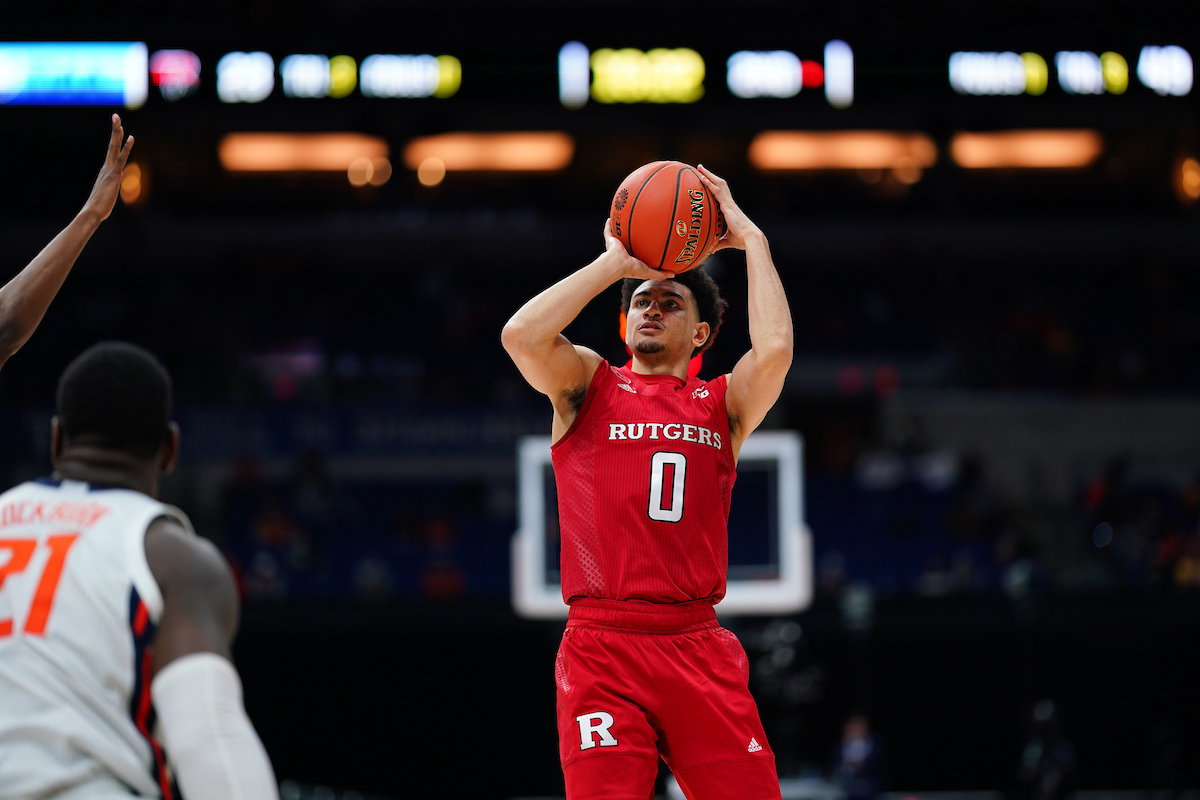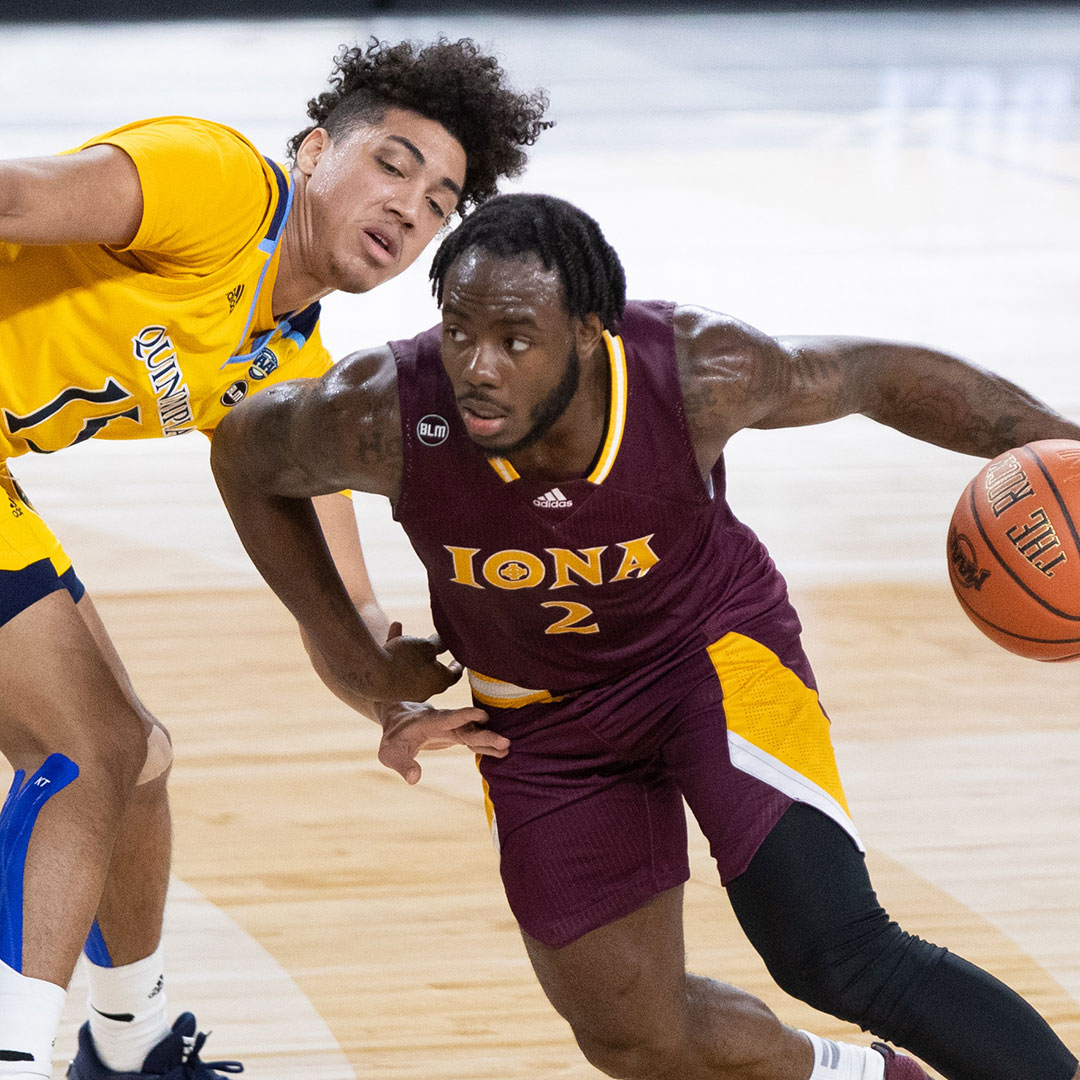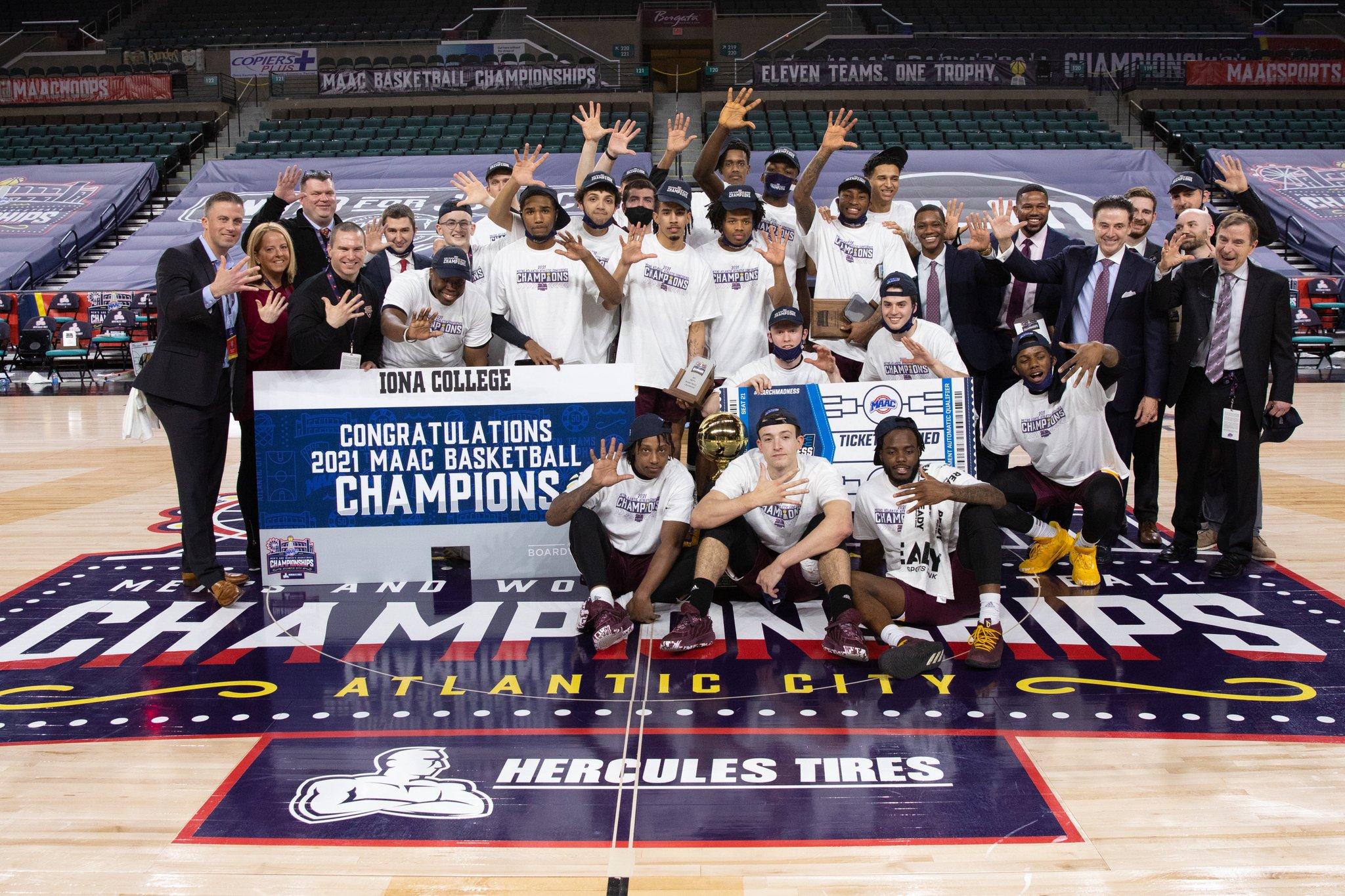Kyle Neptune ascends steps to Rose Hill Gymnasium, and up the ladder to his first head coaching job after Fordham made his hire official Tuesday. (Photo by Fordham University Athletics)
Fordham greeted its future Tuesday, unveiling Kyle Neptune as the new head coach of the Rams to complete a two-month search process initiated by athletic director Ed Kull and university president Rev. Joseph McShane by bringing the 36-year-old Brooklyn native back to his home city after eight years on the staff of Jay Wright at Villanova, under whom he helped develop the Wildcats into two-time national champions in his stint on the Main Line.
Further insights into how Neptune will mold his program will come as the offseason rolls on, but on the day he was introduced, I was able to take a few minutes to get a feel for what lured him to the Bronx, the type of players and coaches he will target to join him on this endeavor, and what he sees Fordham becoming under his watch:
Jaden Daly: If you can, just take me through the whole process of being a candidate, meeting with Ed, meeting with Father McShane, the administration. What attracted you to Fordham, what convinced you that this was the move after spending 13 years as an assistant, the last eight with Jay?
Kyle Neptune: I’m a New York City guy. I’m from Brooklyn, and I’m passionate about New York City basketball. Growing up, I’ve come to Fordham as a player in grassroots as a teenager, and as a coach coming here to recruit for the catholic school playoffs. I’ve always looked at it as a special place, a place I could possibly end up at, and I’ve always been passionate — always kept an eye on this place — and now being here, it’s very apparent, just meeting a lot of the people here, how special a place this is. So being a New York City guy and the great academics here, I look at this place as a place I could have ended up at as a New York City private school kid. This is one of the schools that I looked at — I guess I wasn’t good enough of a player to get here, as Ed told me earlier — but I’m definitely passionate about Fordham University.
JD: How much has changed in terms of New York basketball since you left on your own to start your coaching career, and now that you’re back, how much better has it become and how much more can you add with your experience to an already evolving talent pool and game here?
KN: I think New York has always been known as the Mecca of basketball, and I think that it’ll always be that place because of the amount of people here, and there’s enormous talent to choose from. I’m planning on using my relationships that I’ve gained from growing up here and then coming back to recruit here to Fordham’s advantage, and I’m excited to kind of reaffirm the relationships that I’ve had over time here. Hopefully they’re as passionate about Fordham basketball as I am.
JD: For those who don’t know you, what goes into a Kyle Neptune player, a Kyle Neptune team, your personal brand of basketball? What can we expect?
KN: I’m just looking for special people. I think that we’re trying to find special people who think a little different and want to achieve special things. I really believe that if you’re willing to do things and create very good habits, you can accomplish great things, and that’s what we’ll be looking to do on the recruiting trails and for our staff as well.
JD: I know it’s too early to speculate on who you would hire for a staff, but what are you looking at in prospective assistants? What kind of qualities would endear you to them to jump on board with you?
KN: For me, I’d like every coach to be a great mentor to our guys, to be a good coach, and be a great ambassador for our university. I think everyone will have a different role in terms of assistant coaches, basketball operations, video coordinator, all those things, but I want those three things to be consistent: Being a mentor to our guys, being a great basketball mind and a great coach, and being a great ambassador to Fordham University.
JD: From watching Villanova over the years, the culture has always been the biggest part of that program. How much of that will you bring with you here to Fordham, and what particularly are you looking to instill?
KN: I think it starts with finding special people who want to be special. I think culture’s a big buzzword that people talk about a lot now, especially in college athletics, but I think that really starts in recruiting and finding people who are willing to do things and go through things that most people aren’t, and are willing to commit themselves at a different level. So it starts there for me, finding special people willing to give of themselves and commit at a different level.
JD: You mentioned you’re looking to get challenged as far as the out-of-conference schedule. What kind of profile do you eventually hope to attract with this school and this program to get it back to the level it once was at?
KN: We want to be the type of program where we’re looked at as the best of the best. I want to compete at the highest levels, I want to compete with anyone in the country, so that’s what’s going to be the goal. At the end of each season, we want to be the best we can possibly be, with the ultimate goal being known as one of the best of the best.
JD: Have you met with any of the current players in the program yet, and if so, how much of their skills translate to the type of system you want to run?
KN: We got a chance to meet with our guys earlier today, we’re going to set up some individual meetings to kind of dive in further and start to build some relationships, and then we’ll get on the court in the next week or so here and start building those relationships and start trying to figure out exactly what we’re going to do on the basketball court moving forward.
JD: Is there a particular style that you’re looking to implement? I know Jay ran the four-out offense.
KN: Yeah. For the four-out, you’re going to need great basketball players, guys who can read and react and make plays, and maybe not running as many sets. To do that, you’ve got to recruit really good basketball players who make good decisions, and that’s definitely something I’m going to do.
JD: As far as Fordham overall being one of the better jobs in the New York area and the reach that the A-10 has, what can this program ultimately become in your eyes?
KN: I think we touched on it before: I want to compete with the best of the best. I think the Atlantic 10 is one of the best conferences in the country, I think the league is going to get better, and I want to compete to be one of the best teams in this league. That’s always going to be the goal.

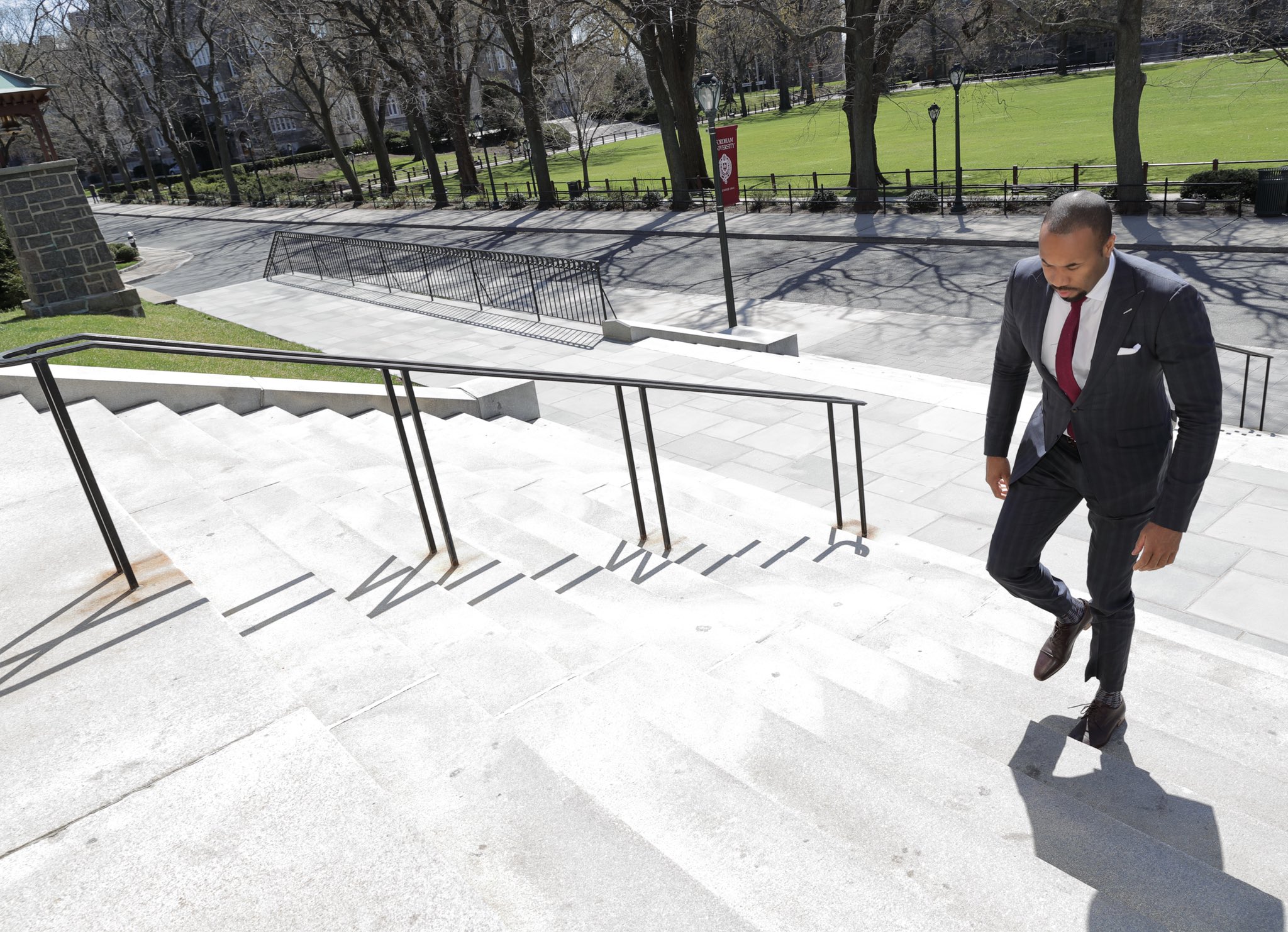
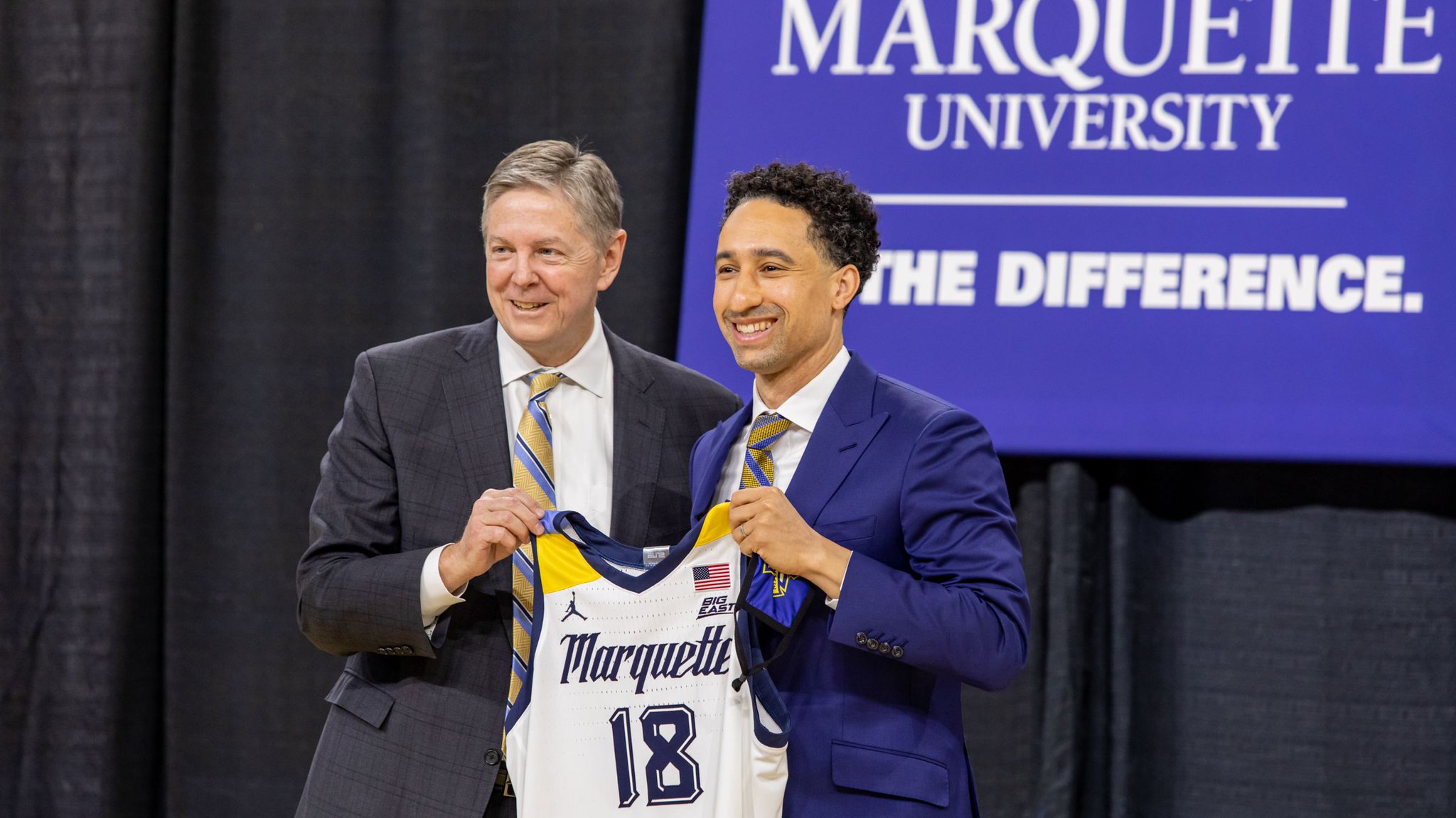
/cdn.vox-cdn.com/uploads/chorus_image/image/63198027/941210992.jpg.0.jpg.cf.jpg)
